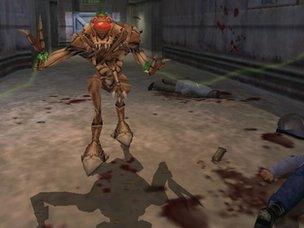Valve opens Linux video game store
- Published

The original Half Life game has been converted to run on Linux
Software firm Valve has launched a Linux version of its Steam game store.
The games made available via the online Steam store are playable on the Ubuntu version of the Linux open-source operating system.
Through the store, Ubuntu users can get at almost 60 games including popular titles such as CounterStrike and Team Fortress 2.
The launch comes as Valve lays off about 10% of its staff including some who were working on hardware projects.
Open-source software gives users access to all its underlying programming code and stands in contrast to closed or proprietary software which locks such information away,
No discussion
Players can get access to the Steam store using an add-on application available via the Ubuntu software centre.
As well as games made by Valve, the Linux version of Steam also sells titles made by other companies.
They include Amnesia, FTL, Serious Sam 3 and World of Goo.
As it opened the Linux store, Valve also cut the prices of the PC and Mac versions of games available to Ubuntu users by up to 75%. The sale will run until 21 February.
David Pitkin, who works for Ubuntu developer Canonical, said he now expected "a growing number of game developers to include Ubuntu among their target platforms".
Currently, few game makers produce a version that can run on Linux or other open-source operating systems.
While almost 60 titles are available on Steam, the store sells more than 2,000 games that run on Windows.
The launch is important for Valve because Linux is expected to be the operating system for the console it is developing to allow Steam games to be played on TVs.
As the curtain was being lifted on the Linux store, Valve sacked about 30 members of staff including high-profile developer Jeri Ellsworth who was reportedly working on the hardware behind the company's console.
Valve boss Gabe Newell took the unusual step of issuing a statement about the lay-offs to curb speculation about what they would mean for the company's many projects.
He said the sackings did not mean it was cancelling any projects or changing its priorities.
"We're not going to discuss why anyone in particular is or isn't working here," he said.
- Published10 December 2012
- Published26 July 2012
- Published31 July 2012